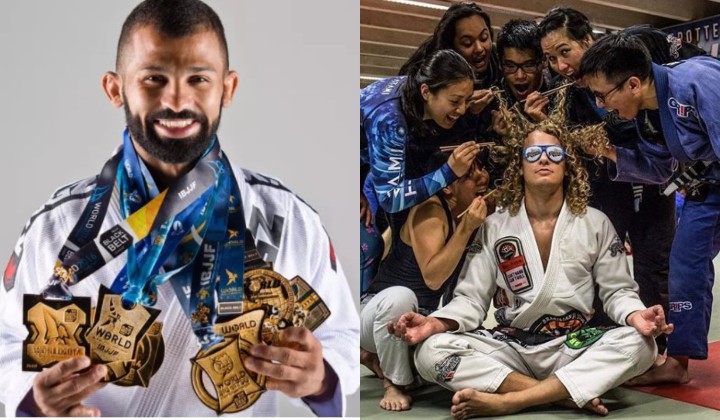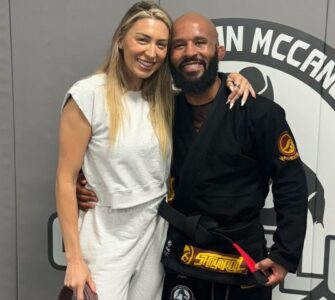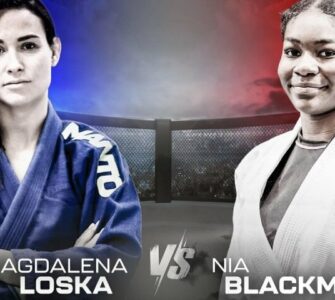In the world of Brazilian Jiu-Jitsu, there are typically two types of practitioners: the full time BJJ competitor and the lifestyle (recreational) practitioner. Each follows a distinct path with its own unique challenges and rewards.
Brazilian Jiu Jitsu is rapidly evolving into a more professional arena. Athletes now have growing opportunities to earn and be recognized as professional competitors. Alongside this, there’s a notable increase in full-time practitioners dedicated to competing. Over the past ten years, the skill level in the sport has surged, with participant numbers at the International Brazilian Jiu Jitsu Federation Worlds rising sharply each year.
This trend highlights the fact that more individuals are embracing Jiu Jitsu as a way of life, aiming for world championship titles. Moreover, the sport is gaining immense popularity among those who practice it for leisure. The benefits of Jiu Jitsu are attracting more participants and leading to the opening of more training centers.
Today, the Jiu Jitsu community is diverse, including highly committed competitors training full-time and those who practice it casually. A recreational practitioner is someone who engages in Jiu Jitsu for various reasons like self-defense, fitness, socializing, or general health, without the intention to compete.
This mix of serious and casual practitioners is at an all-time high, which can sometimes lead to tension. For example, those who have dedicated their lives to Jiu Jitsu may progress faster than recreational practitioners who started at the same time, causing frustration. This difference in progression is often because full-time competitors, usually younger, can train around 6 hours a day, 6 days a week, whereas recreational participants might train only about 3 hours a week. This means a full-time competitor can accumulate as much training in a single day as a recreational practitioner does in two weeks.
The Jiu-Jitsu Competitor
Training Focus: Competitors train with the primary goal of excelling in tournaments. Their training is intense, often twice a day, and heavily focused on technique, strategy, and physical conditioning.
Challenges:Risk of Burnout: The relentless pursuit of victory can lead to mental and physical exhaustion. High-intensity training leaves little room for rest and recovery.
Dependency on Competition: A competitor might become overly reliant on the thrill of competition for motivation. When they’re unable to compete, whether due to work commitments or a series of losses, this can lead to a loss of purpose in training.
Impact on Personal Life: The time and energy required for such rigorous training can strain personal relationships and other life commitments.
Outcome: Unfortunately, these challenges can lead some competitors to abruptly quit, especially when their competitive career doesn’t pan out as expected.
The Jiu-Jitsu Lifestyle Practitioner
Training Approach: Lifestyle practitioners view BJJ more as a lifelong journey than a series of competitions. Their training is consistent but balanced, often tailored to fit around other life commitments.
Benefits:Sustainability: This approach is more sustainable over the long term, as it’s less physically and mentally taxing.
Enjoyment and Balance: Lifestyle practitioners often find more joy in the practice itself, appreciating the art, the community, and the personal growth it brings.
Health and Wellbeing: With a more balanced approach, lifestyle practitioners typically report a higher overall sense of wellbeing, both physically and mentally.
Outcome: These practitioners are more likely to train for many years, as their approach to BJJ is integrated into their life, rather than dominating it.
Bridging the Gap:To address the problem faced by competitors, it’s important to foster a balanced approach. This could include:
Mindset Training: Teaching competitors to value the process over the outcome, enjoying the journey of BJJ rather than just the thrill of victory.
Life Balance: Encouraging them to maintain a healthy balance between training, work, and personal life.
Long-term Perspective: Helping them see BJJ as a lifelong pursuit, where competition is just one aspect, not the entirety.By integrating these elements, a competitor can evolve into someone who not only excels in tournaments but also enjoys and sustains their practice over a lifetime, much like the lifestyle practitioner.


















